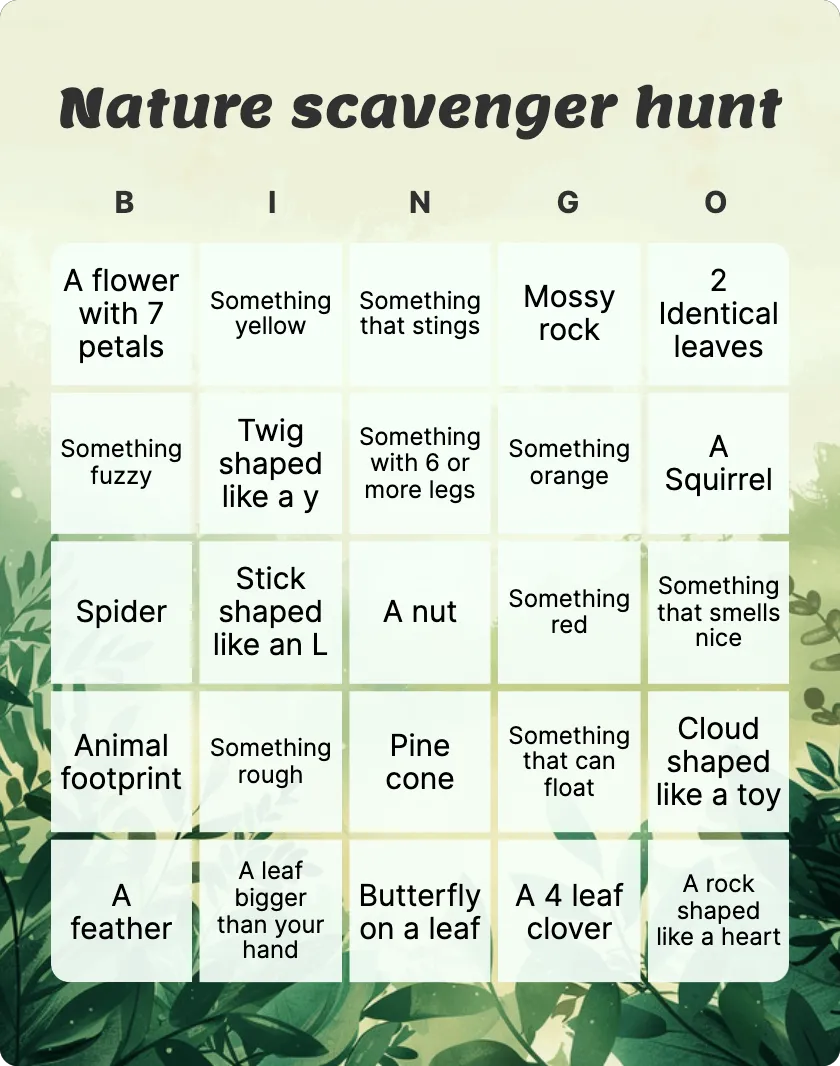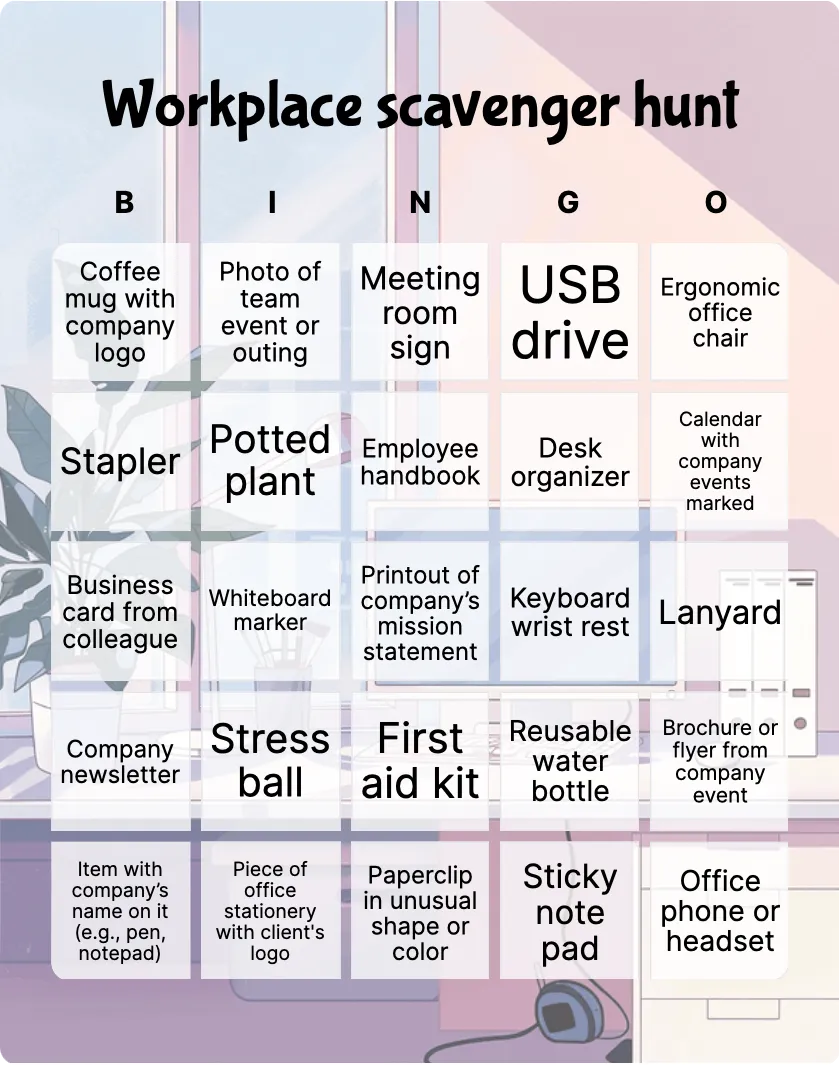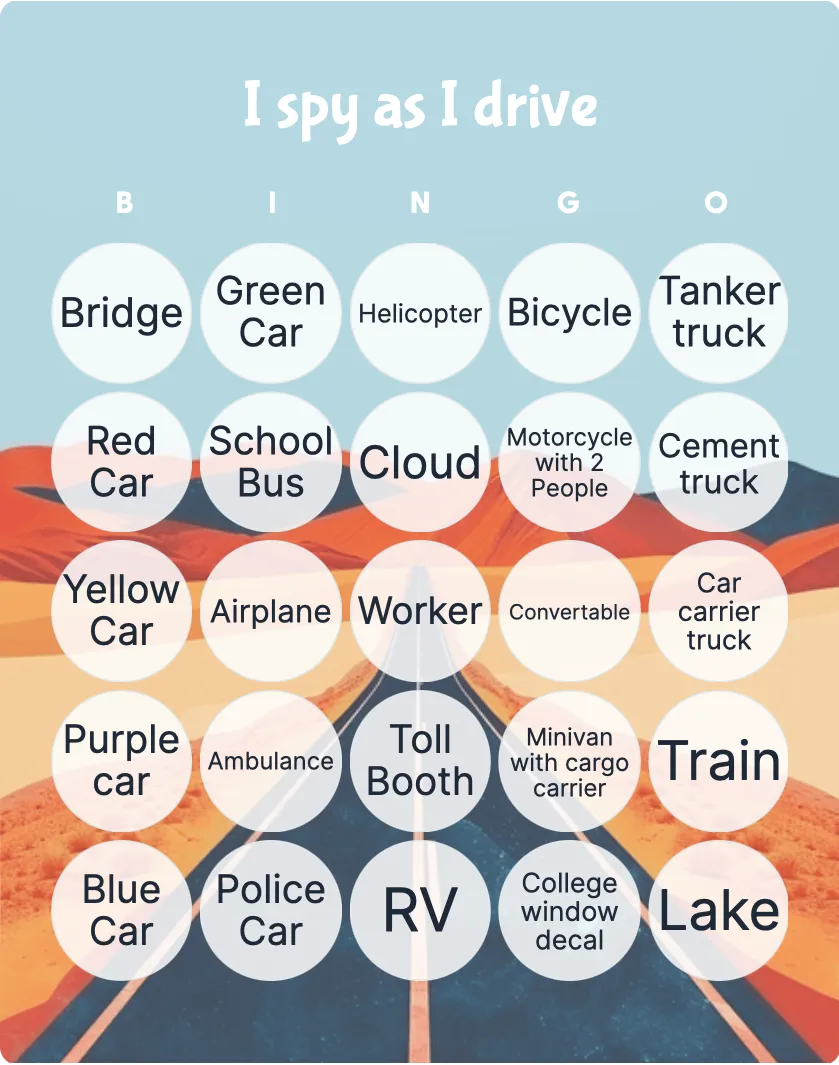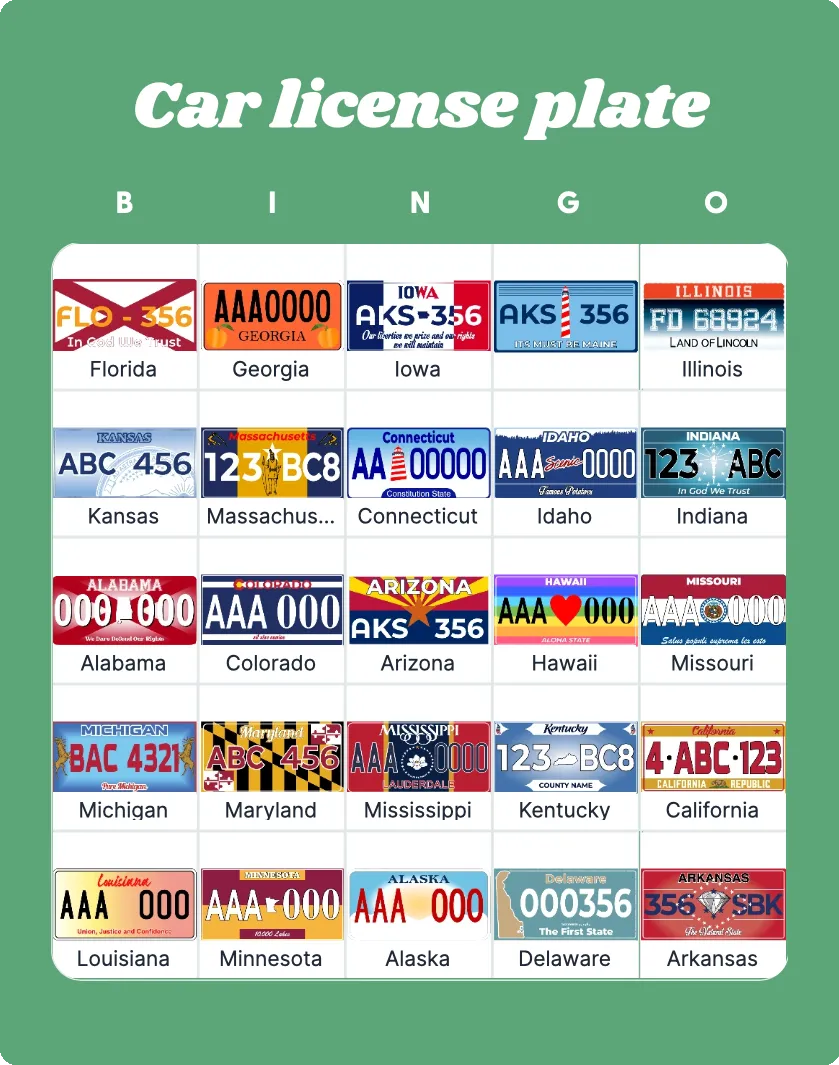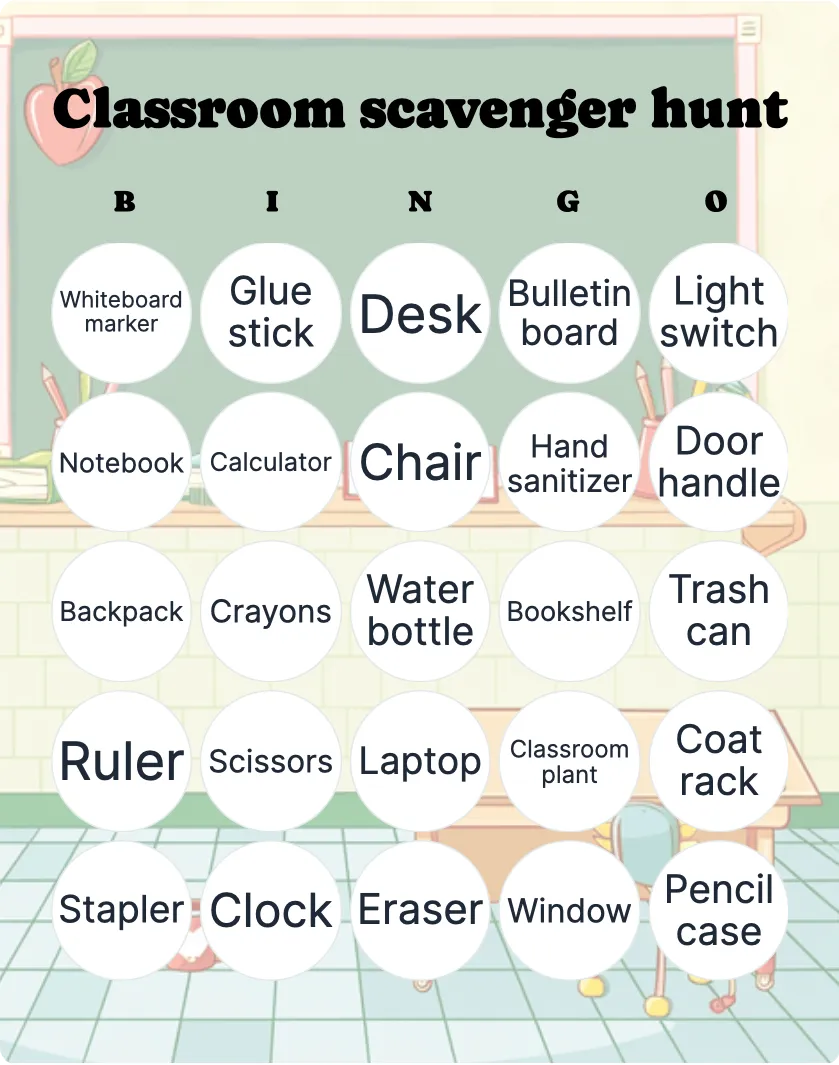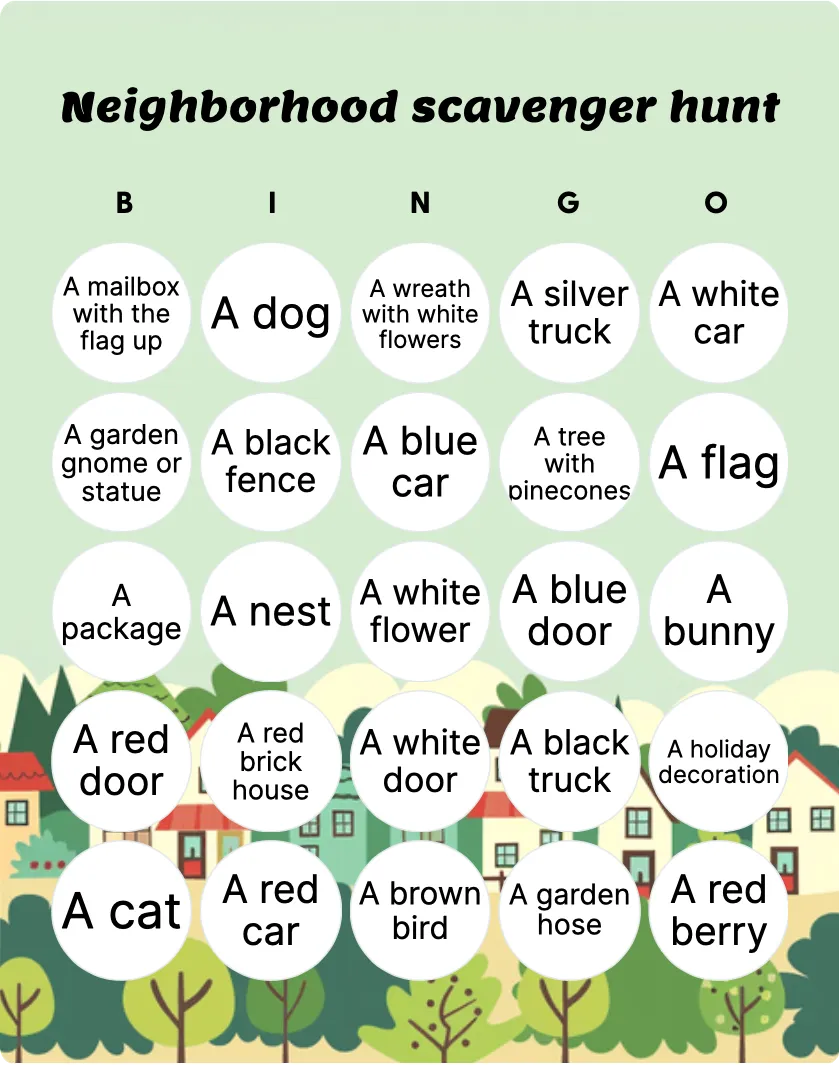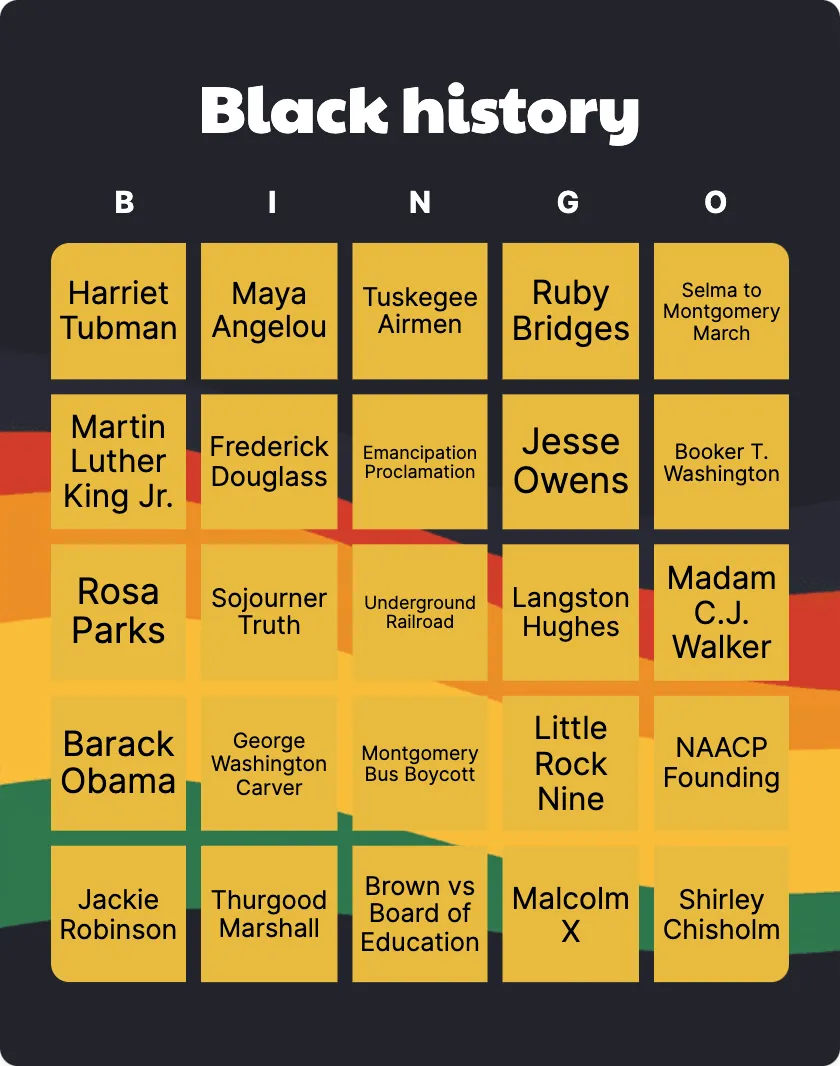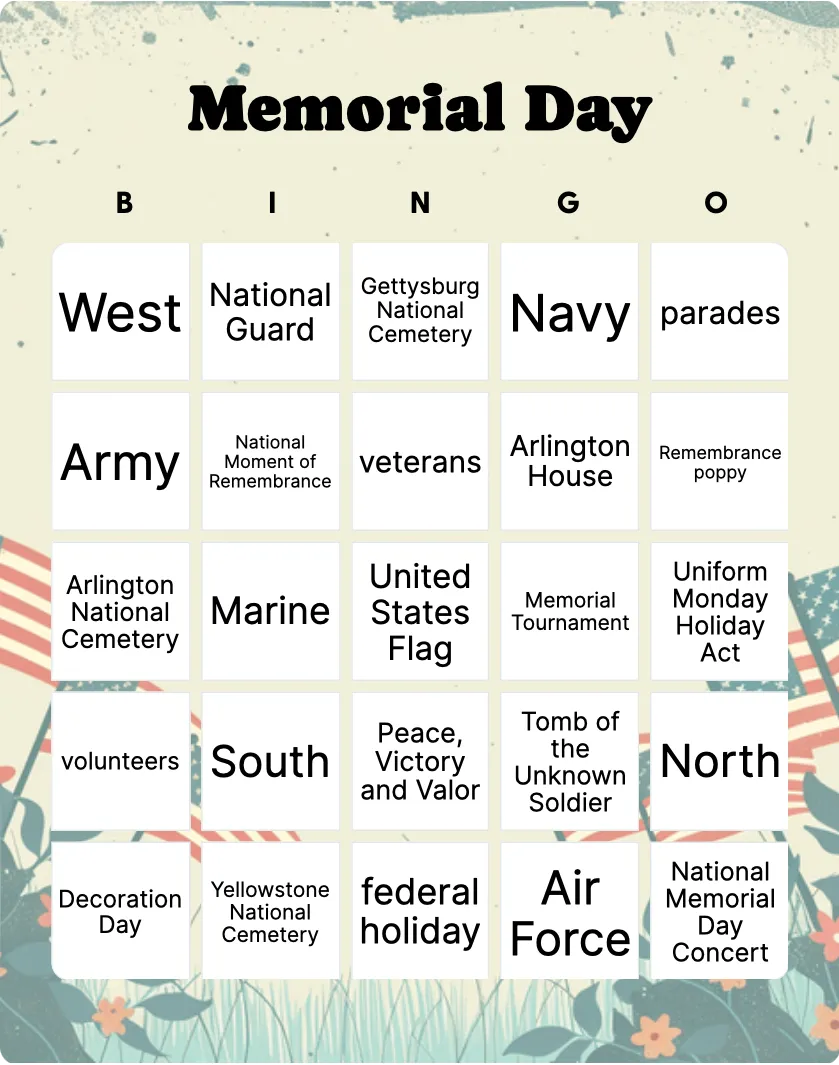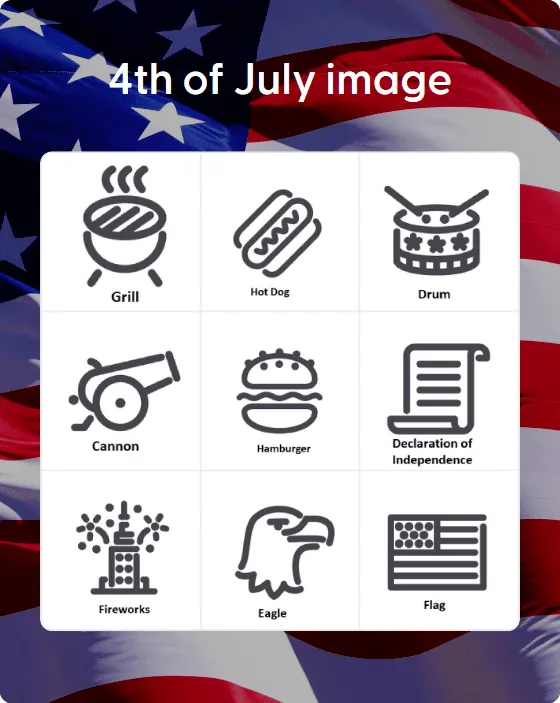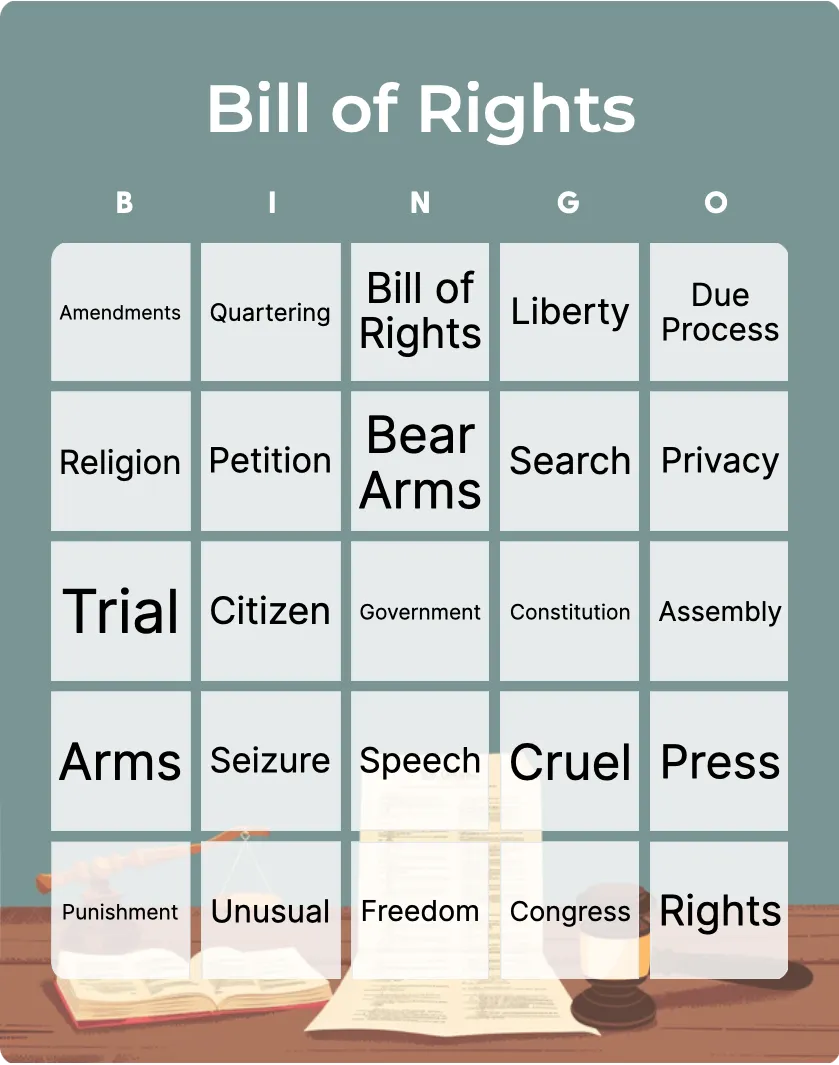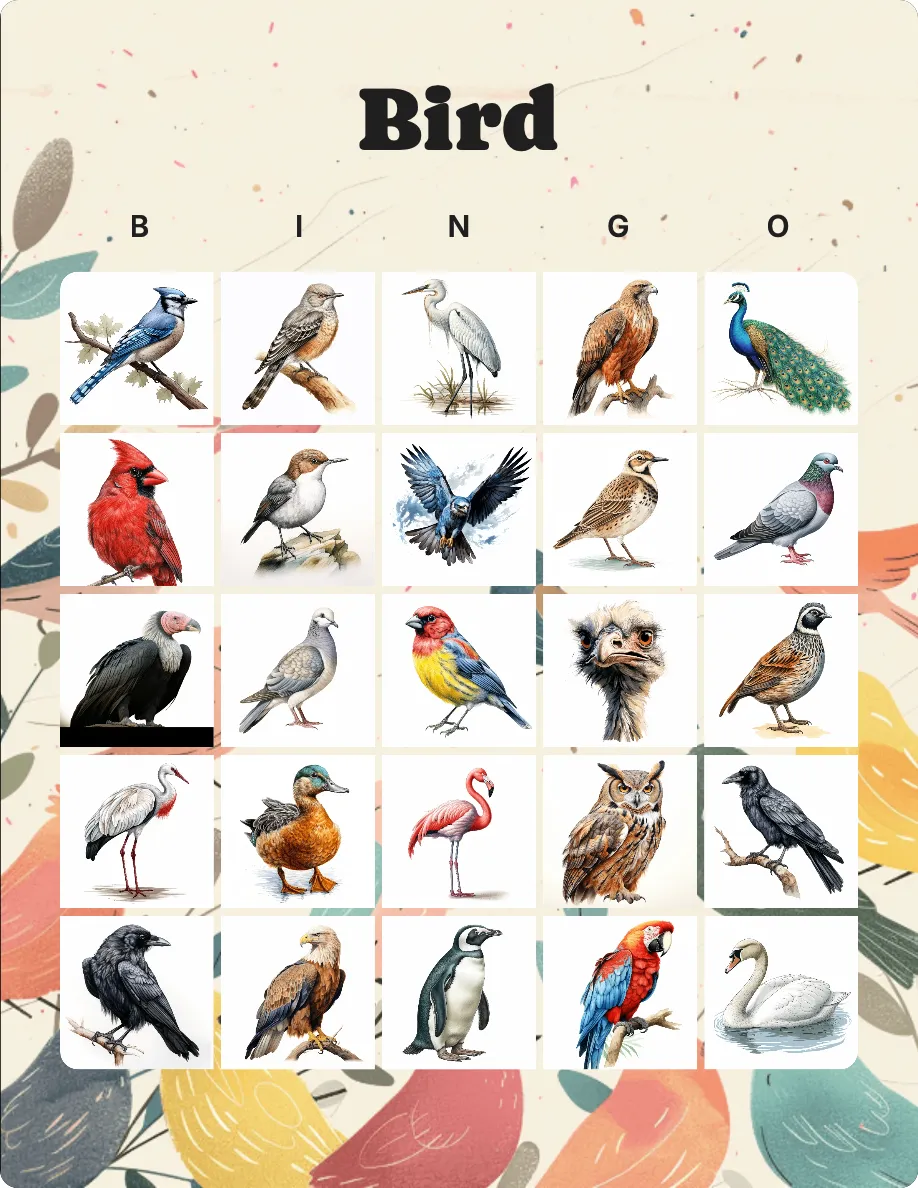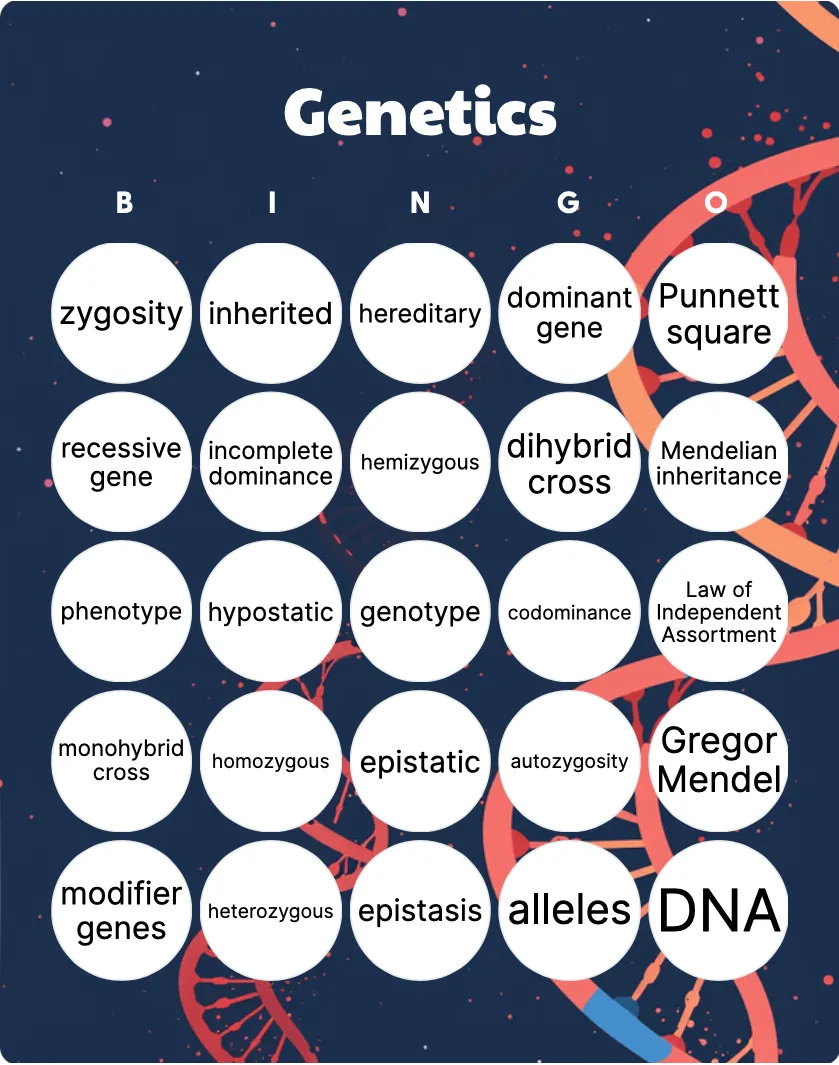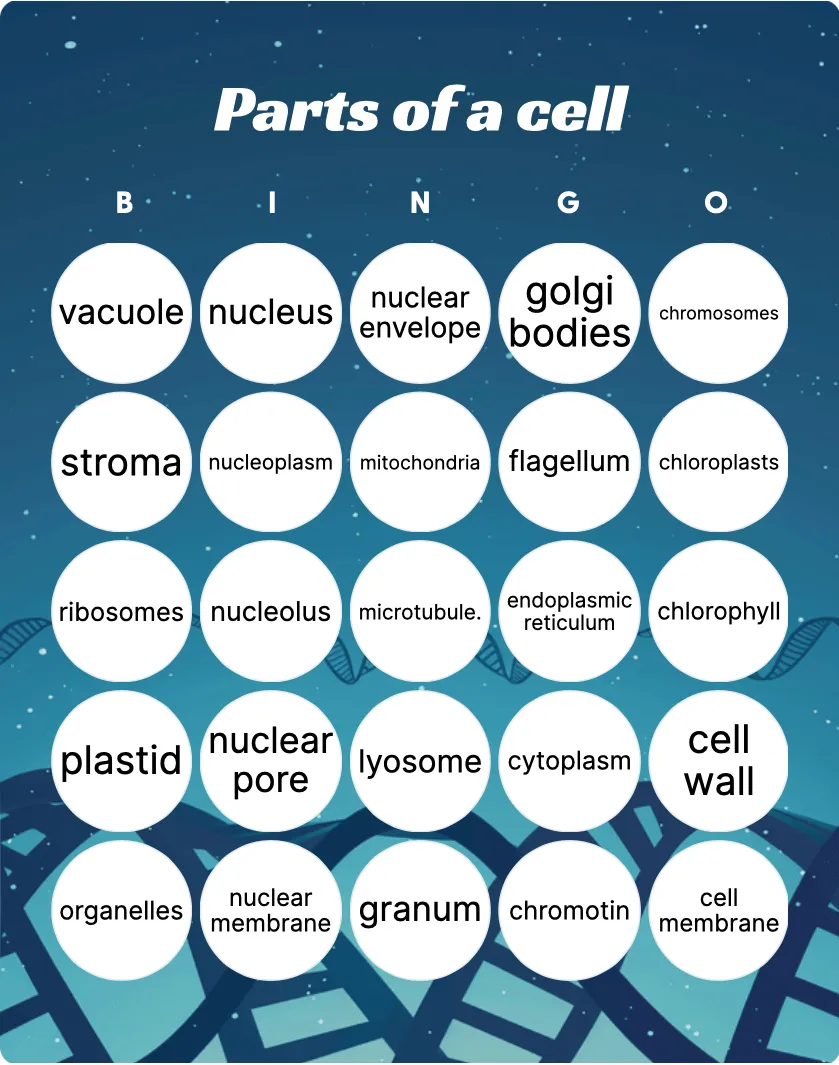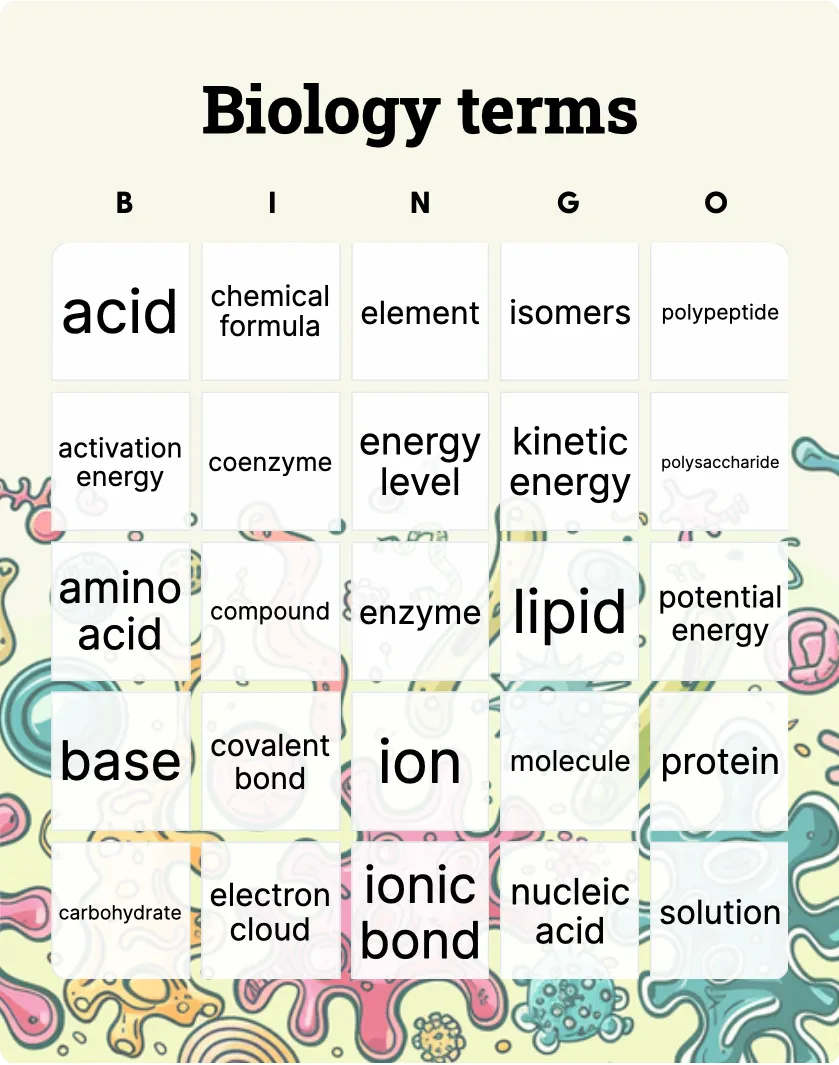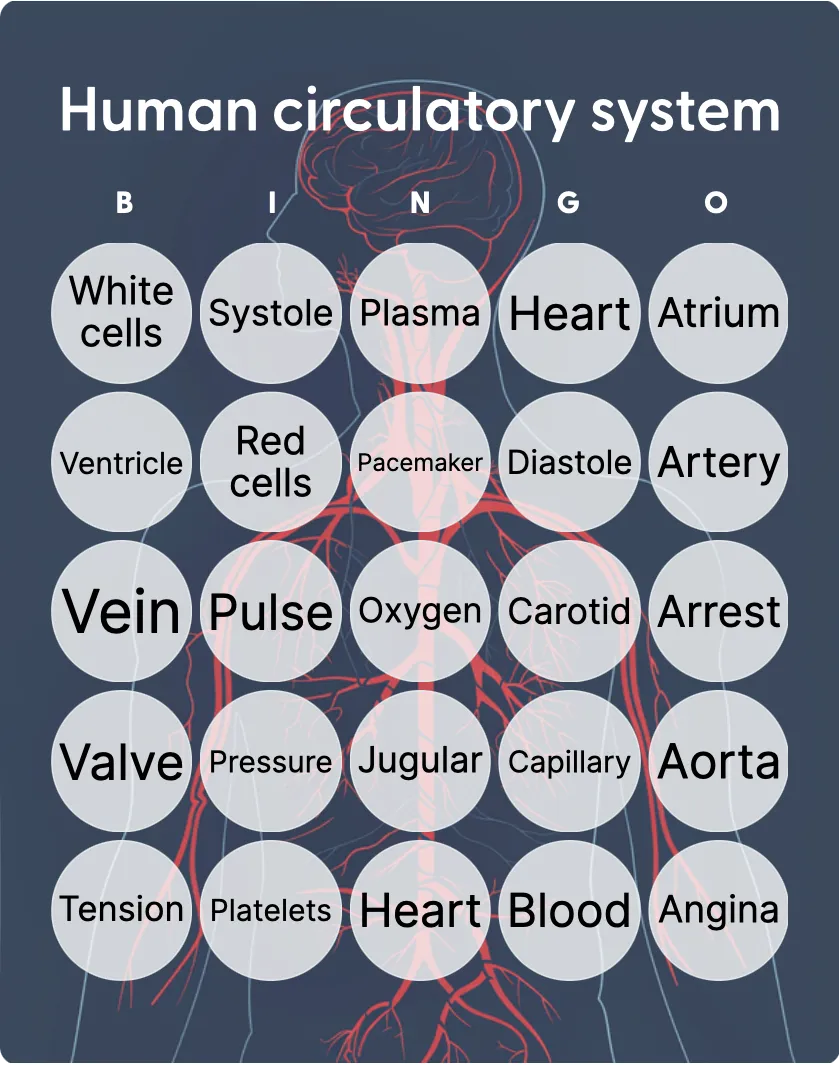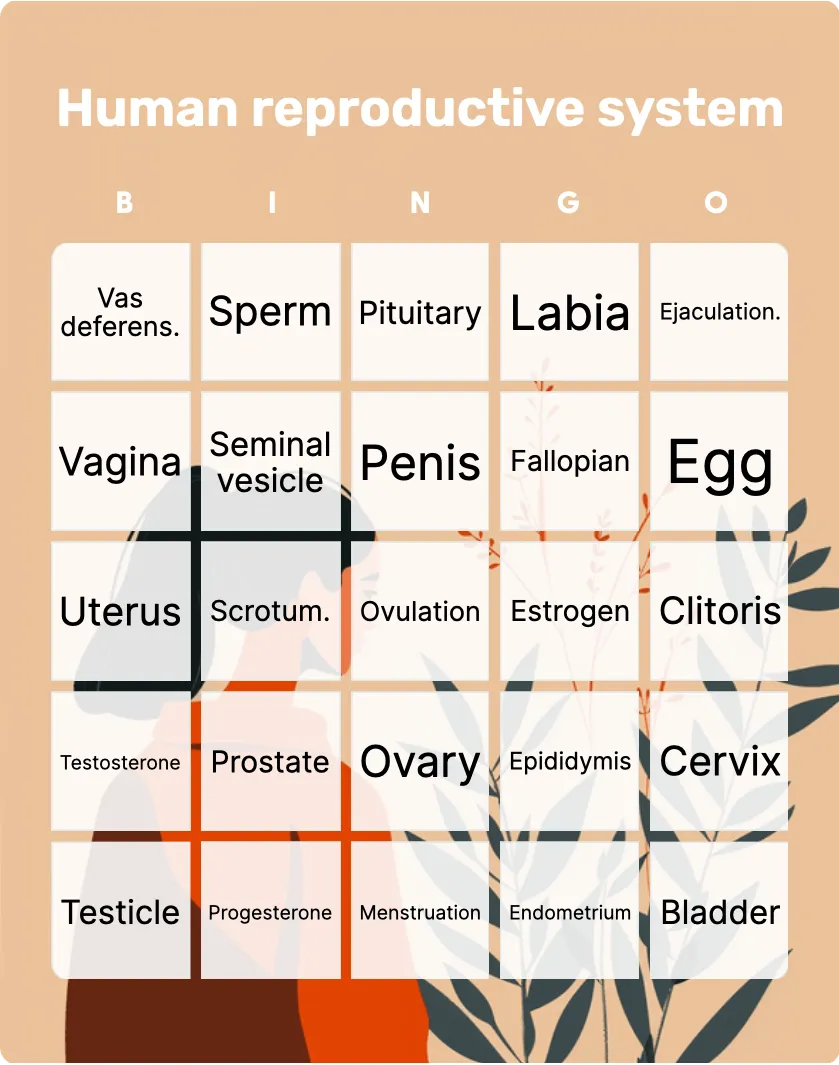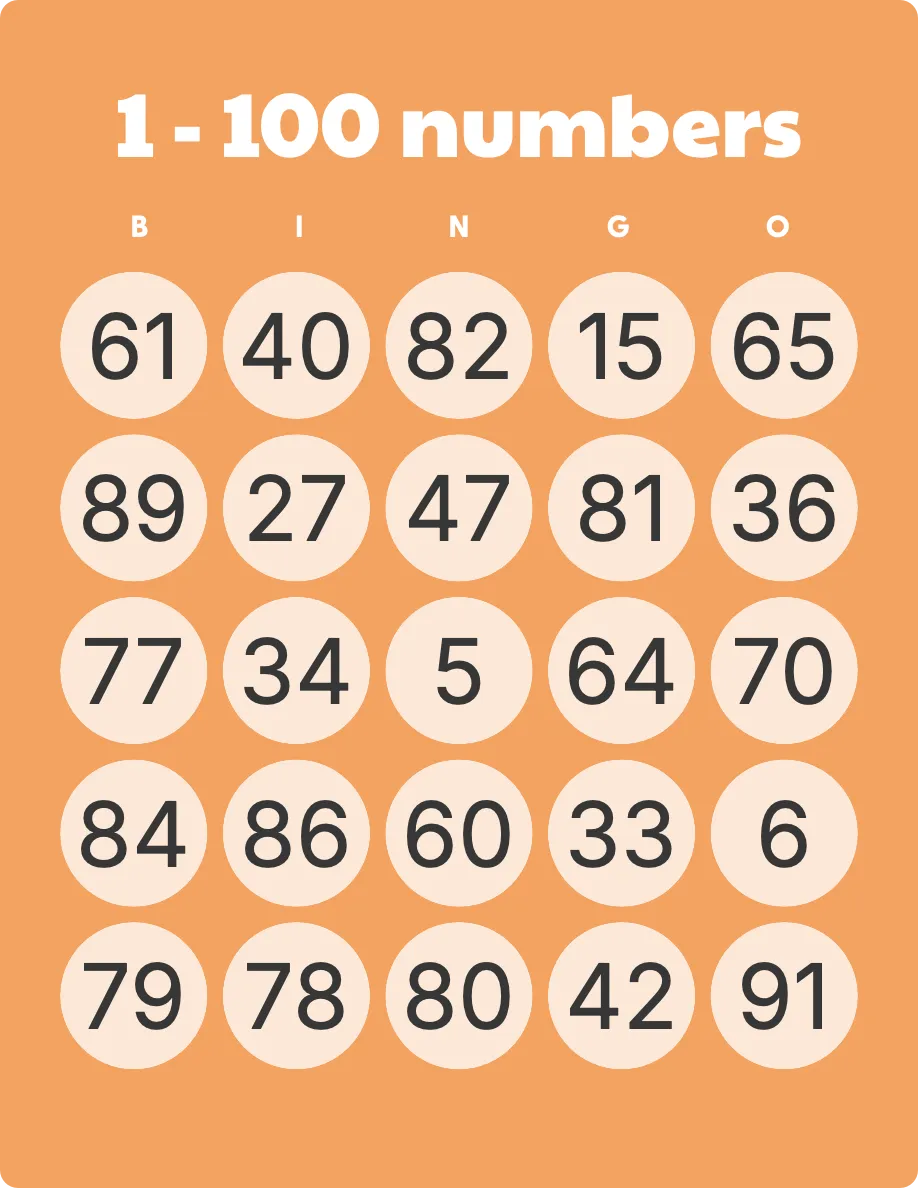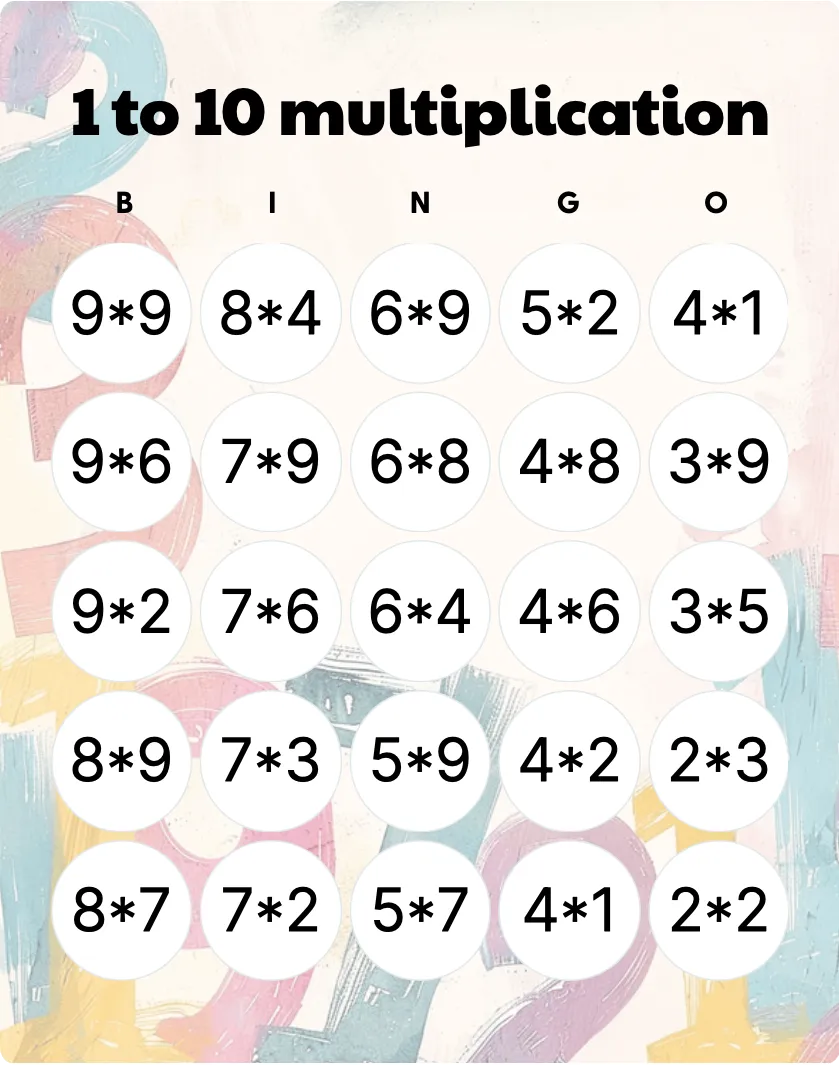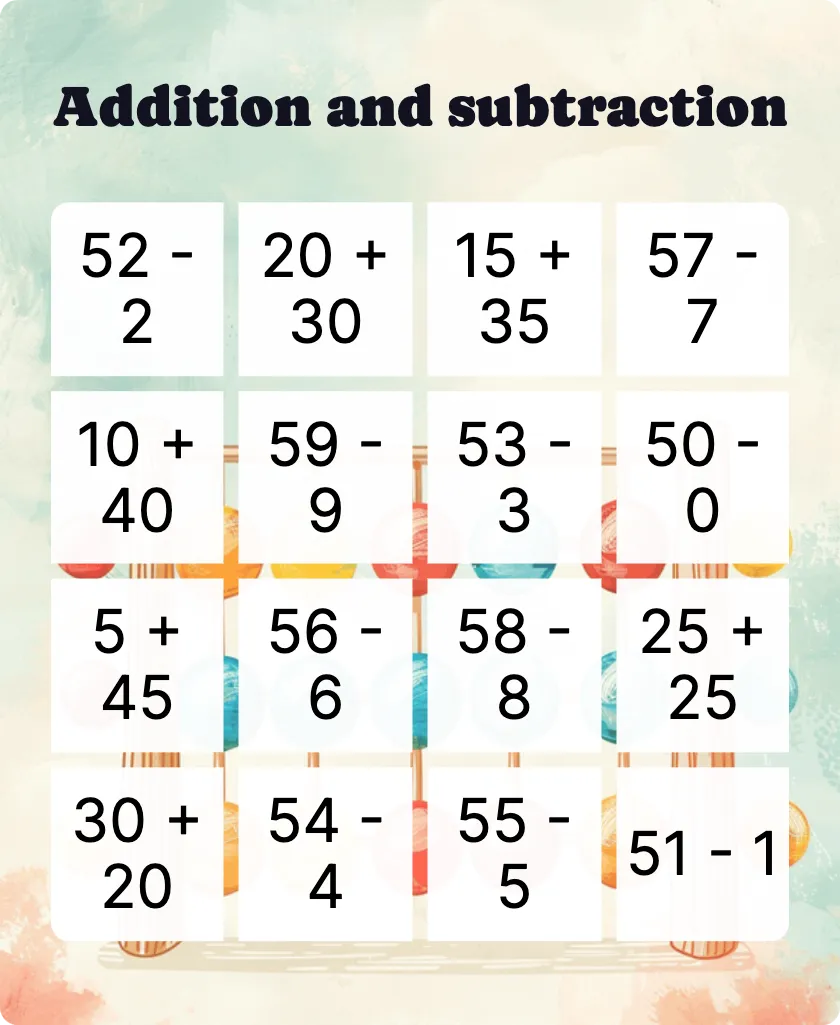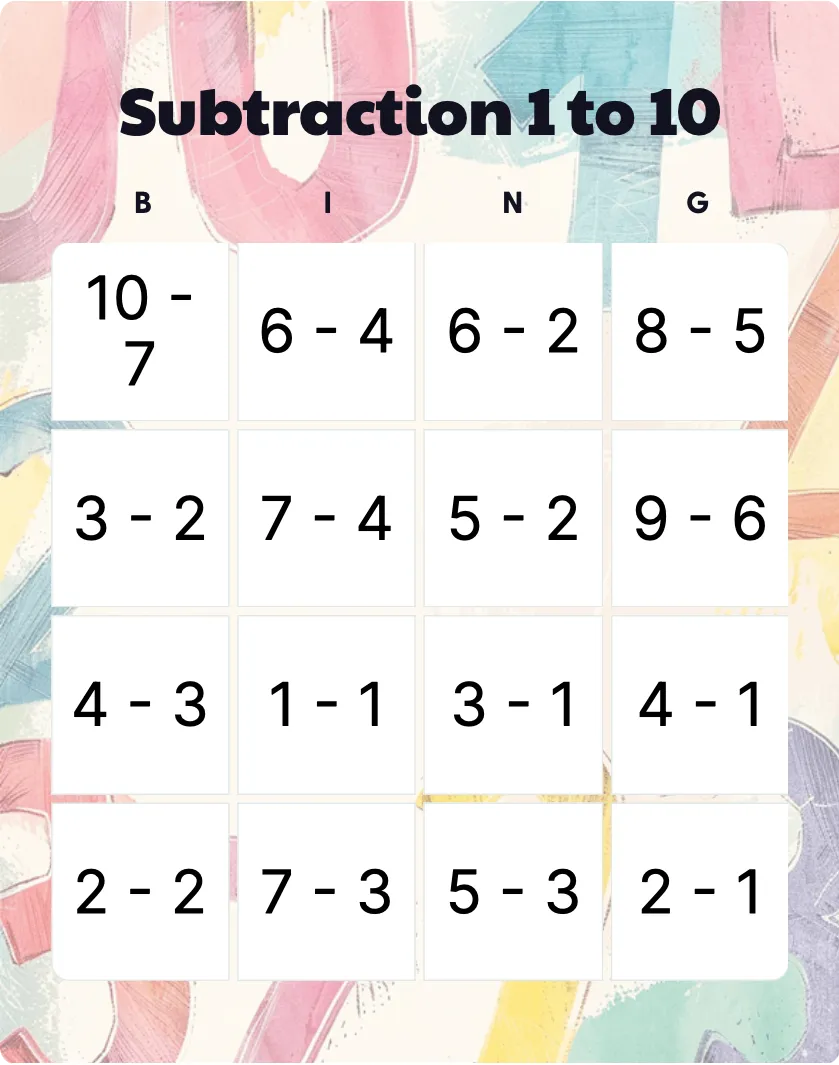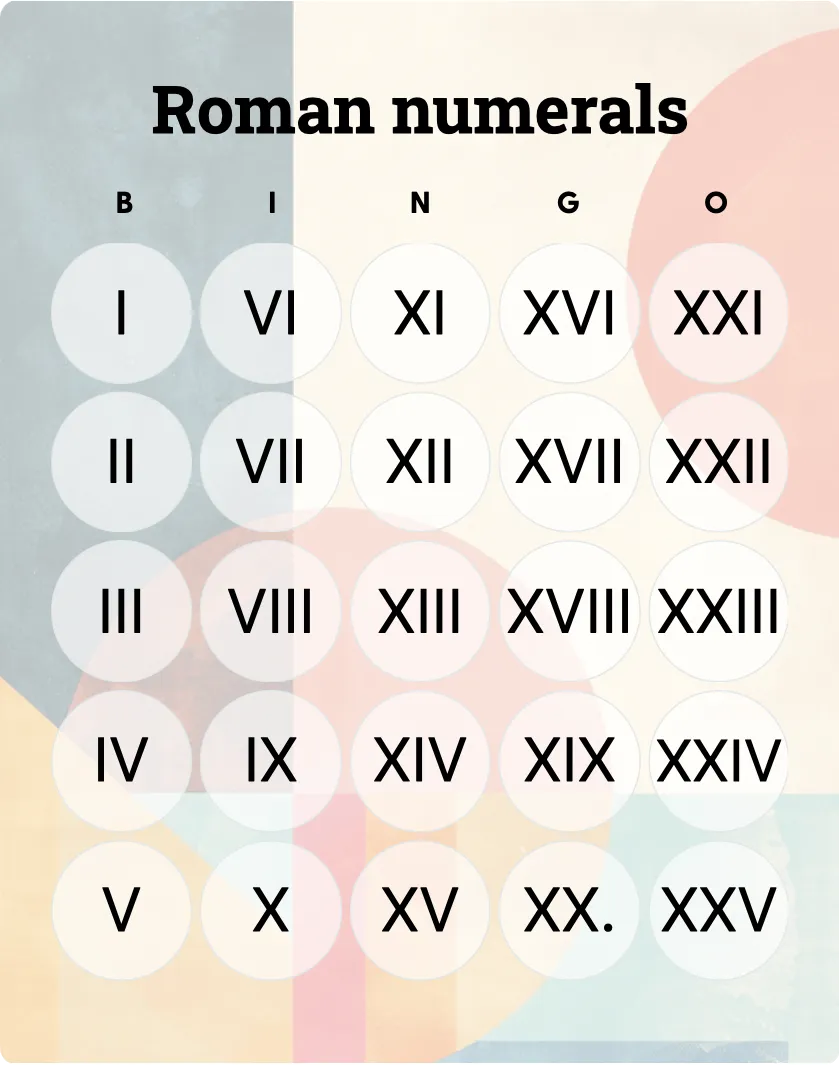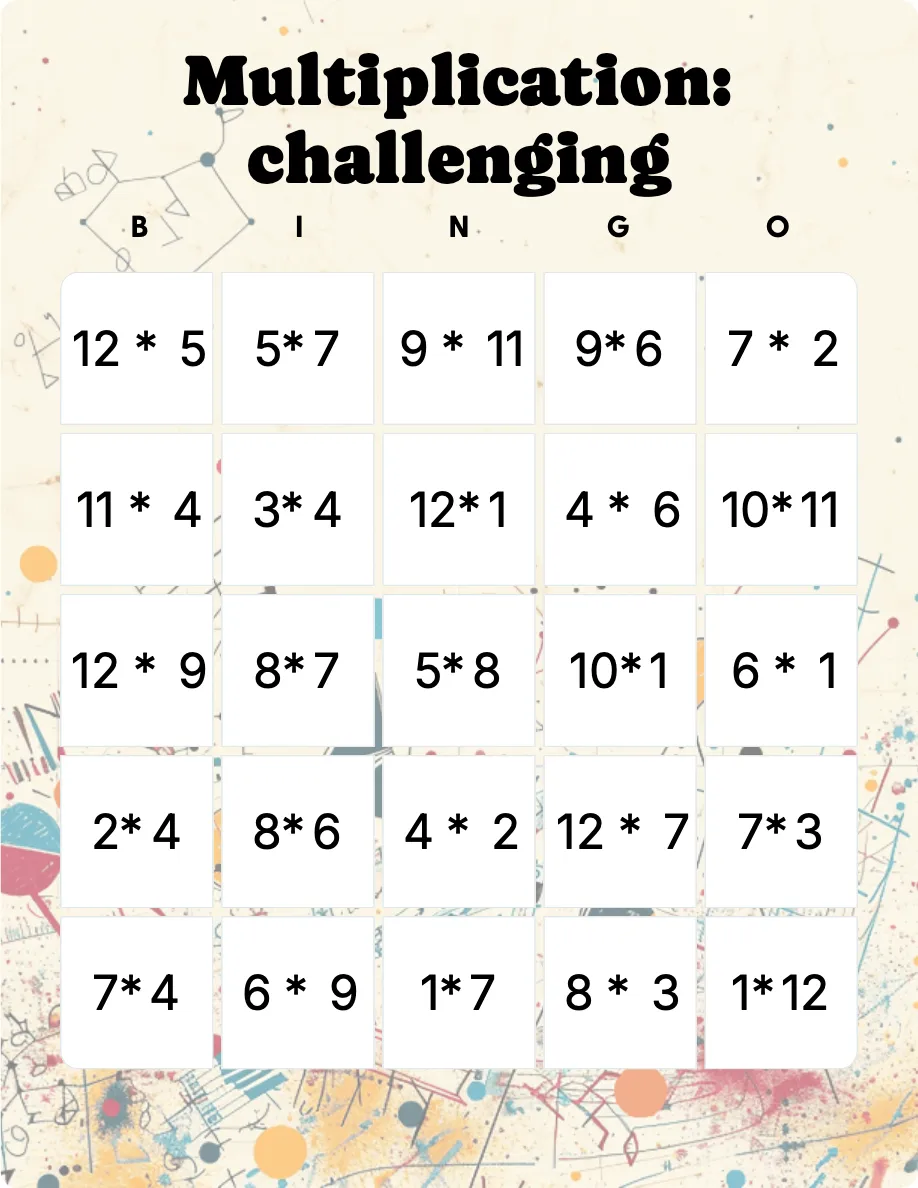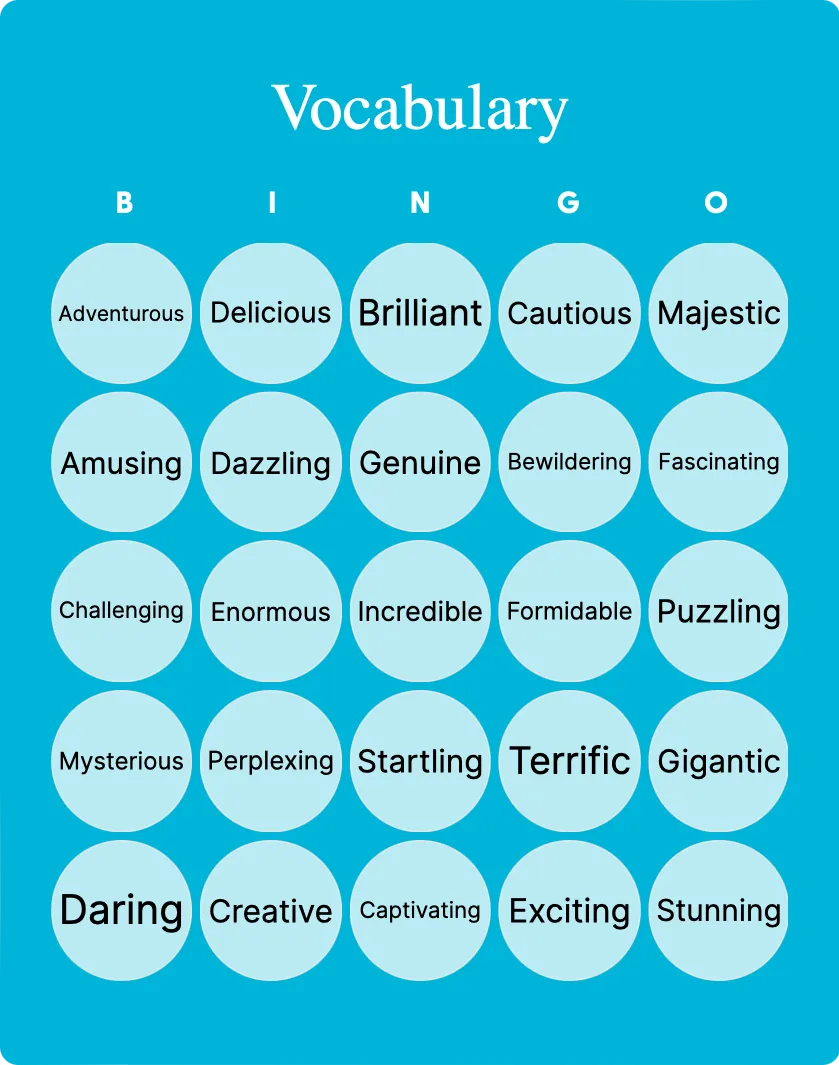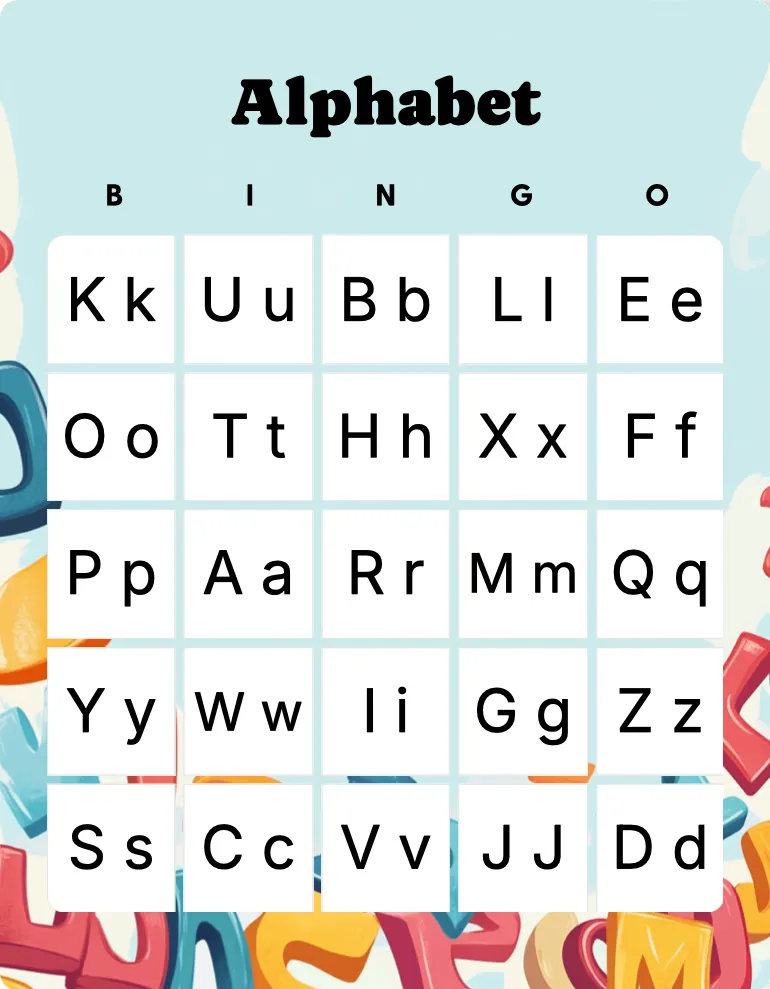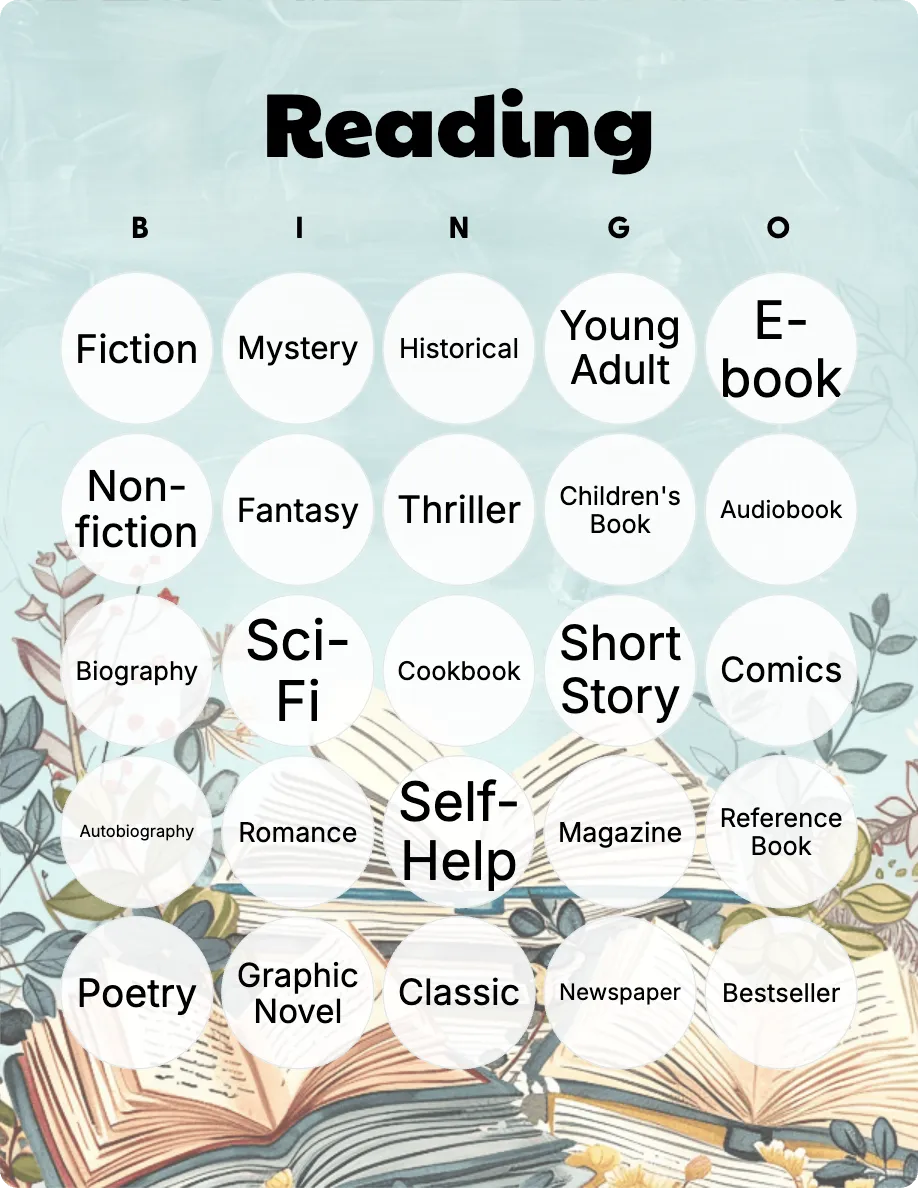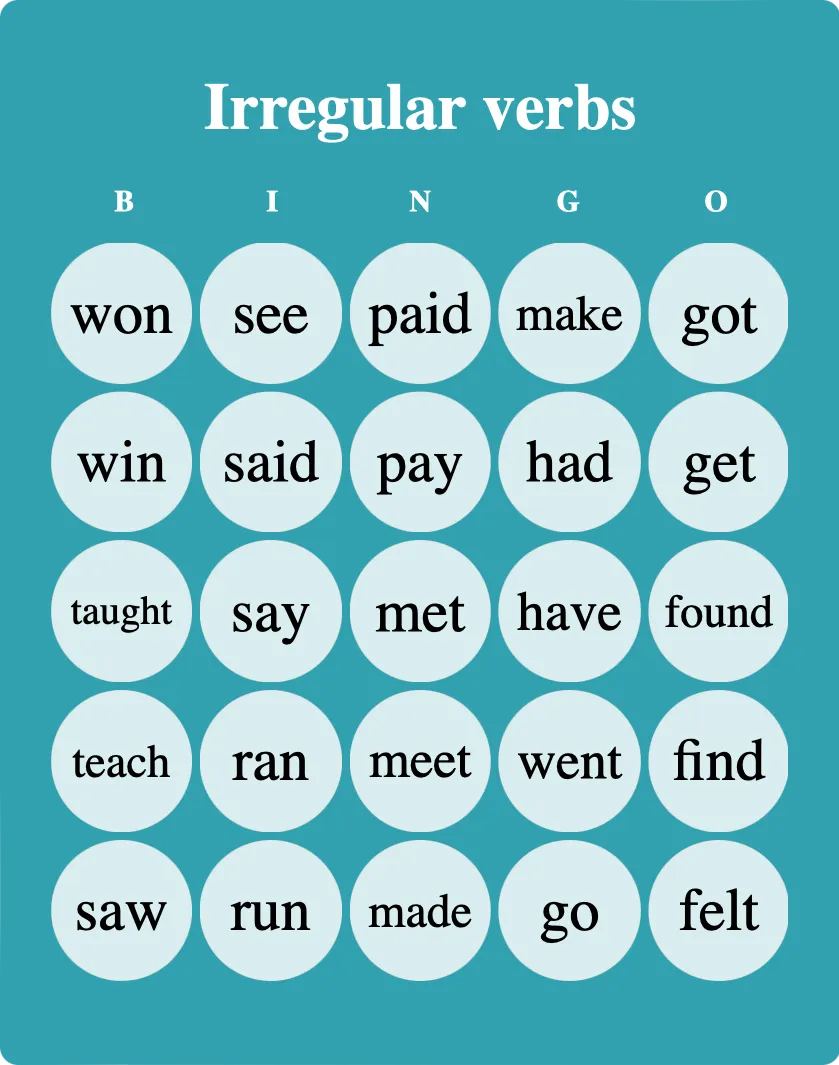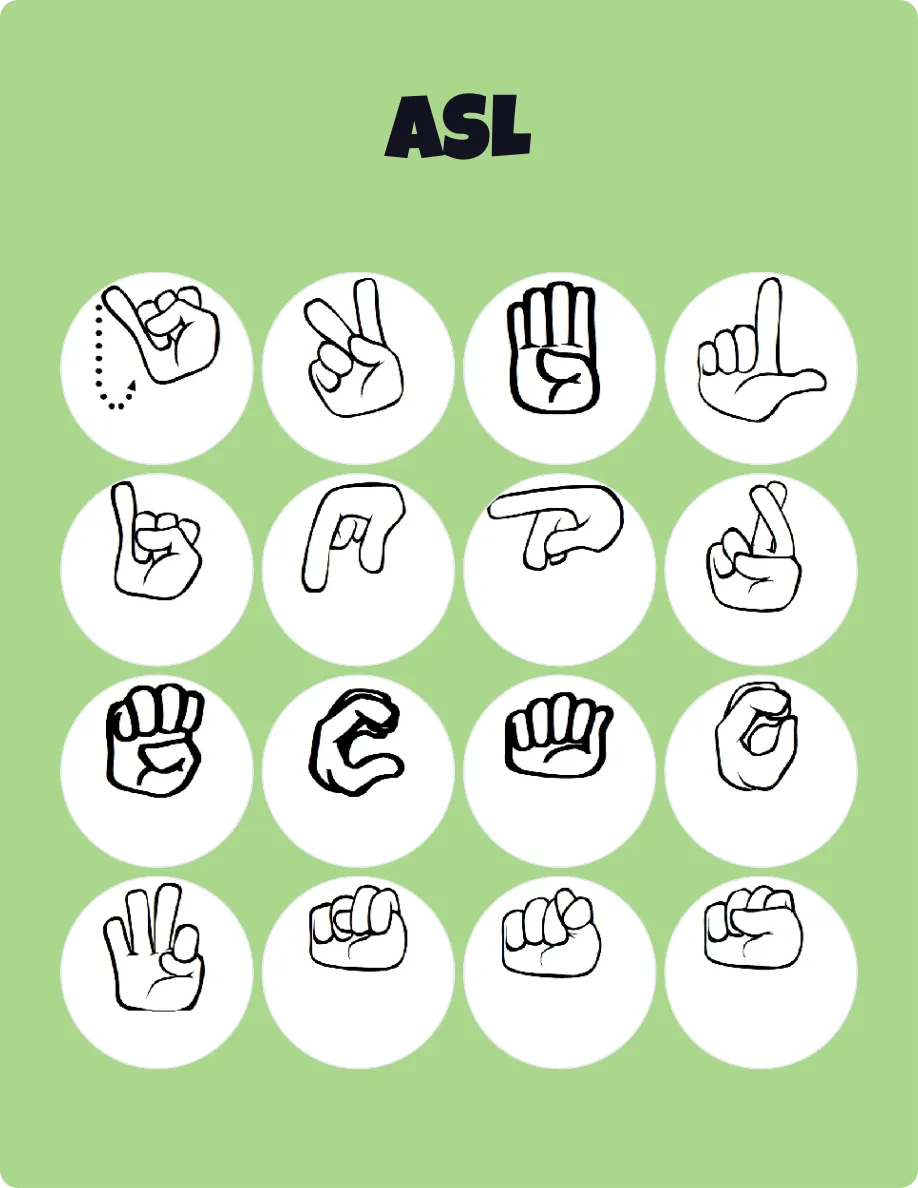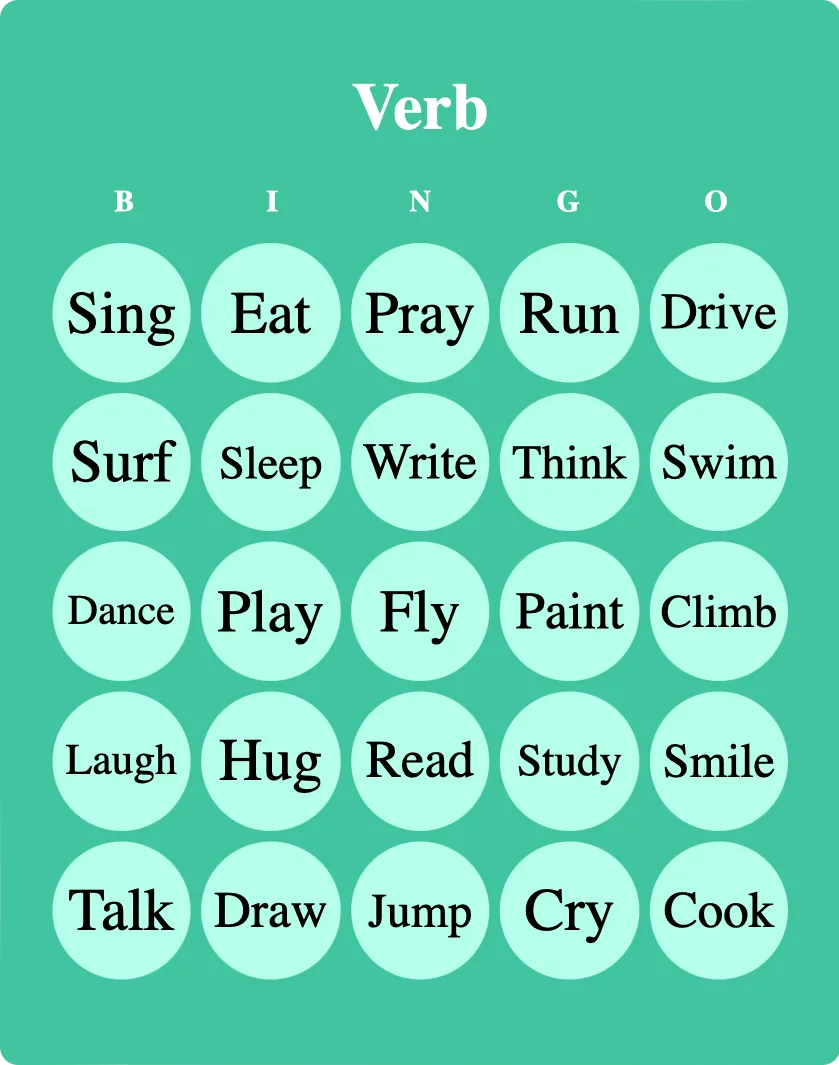30 games to liven up your classroom
Elevate classroom fun while boosting brain power! Dive into our curated list of engaging games, from Math Bingo to History Hopper.
- Reading Time
- 15 min read
- Publish Date
- Oct 2, 2023

Hey there, educators! We all know that learning should be an engaging and memorable experience. Classroom games can be a fantastic tool to make this happen, but mixing it up is crucial. No student wants to play the same game every day, right?
Discover why classroom games rock and a list of 30 thrilling games you can integrate into your lessons.
Games to liven up your classroom generator
Want to generate games for your classroom randomly? Select the generate button below
Table of contents
- Why Classroom Games are a Must-Have:
- 1. Roll and Tell
- 2. Opinion Olympics
- 3. Scavenger Hunts
- 4. Define the Word
- 5. History Hopper
- 6. Wanderlust
- 7. Biology Bingo
- 8. Math bingo
- 9. Charades
- 10. Simon says
- 11. Hangman
- 12. Language Bingo
- 13. Roleplay
- 14. Scrambled Words
- 15. Find the Picture
- 16. Pictionary Relay
- 17. Word Association Chain
- 18. Two Truths and a Lie
- 19. Puzzle Race
- 20. Memory Card Match
- 21. Story Cubes
- 22. Who Am I?
- 23. Flashcard Challenge
- 24. Classroom Jeopardy
- 25. Human Timeline
- 26. Mystery Bag
- 27. Hot Seat
- 28. Popcorn Reading
- 29. Musical Chairs with a Twist
- 30. Spin the Wheel
- Game-Playing Tips:
- Summary
- FAQs
Why Classroom Games are a Must-Have:
- Boosts Motivation: Games give students something fun to look forward to. They allow them to merge creativity with their problem-solving skills.
- Student Engagement: Switch it up from the usual teacher-led lessons. Games make it about the students, showcasing their strengths and areas for improvement.
- Reinforces Knowledge: Games are designed around the curriculum. This means students can apply what they've learned in a dynamic setting.
- Promotes Active Learning: With games, passive listening is out! Active problem-solving and critical thinking are in.
- Teamwork: Many games require teamwork, teaching students the value of collaboration and shared success.
Here are some of the games and the basics that educators need to know to have a vibrant class that is always eager to learn.
1. Roll and Tell

Roll and Tell is a storytelling bonanza that lets your imagination run wild, all thanks to dice decked out with themed images. Spin yarns, slay dragons, or go on quirky adventures—the narrative is in your hands!
How to Play:
Roll dice displaying different images or themes. Students then craft and share stories based on the images presented on the dice's face.
Suitable for learners aged 6 to 12 years, fostering their creativity, imagination, and storytelling skills.
2. Opinion Olympics
Unleash the inner critic in your learners! Let them put on their debate hats and dish out hot takes on characters from novels or historical figures. It's free speech meets Book Club!
How to play:
Write the names of different characters on paper and call students to pick a piece from a bag.
Next, ask the learner to share all the information about the character they picked with the class.
A game that is appropriate for learners in middle and high school, around 11 to 18 years, allowing them to exercise critical thinking and public speaking skills.
3. Scavenger Hunts

Who says learning can't be an adventure? Turn the classroom into a treasure trove as students hustle to find hidden items or answers. Think of it as Indiana Jones meets quiz time!
How to play:
For this game, divide the learners into manageable teams and edit one of our scavenger bingo card templates, or choose from one below.
Scavenger hunt bingo
In the card, include hints of things learned in class that can be found in the learner's immediate environment and let them work as a team to piece clues together and find solutions.
The game will be essential for helping learners of ages five to thirteen interact with their environment and describe what they observe effectively.
4. Define the Word

In this wordy showdown, students get to flex their lexicon muscles by guessing the meanings of given words. It's like a spelling bee but, you know, cooler!
How to Play:
One group presents a word, while another tries to define it. Points are awarded for accuracy, fostering vocabulary development.
Ideal for students aged 10 to 16 years, this game challenges vocabulary and comprehension skills, especially during middle school years.
5. History Hopper

Time travel through your bingo cards! This educational yet zesty game has you hopping through historical events and years to shout out that rewarding "Bingo!"
How to Play:
Distribute History themed bingo cards, call out questions related to your chosen card, and students mark corresponding answers on their cards.
History bingo
Best suited for learners aged 10 to 16 years, the game reinforces historical knowledge and the ability to recall and relate significant events.
6. Wanderlust

Pack your virtual bags and get ready to globetrot! This game tests your pupils' worldly wisdom by quizzing them on global geography. Who knew learning could stamp so many passports?
How to Play:
Provide students with a world map. Pose geographical questions. Students use their maps to answer, marking correct answers on cards.
Recommended for students aged 8 to 15 years, this game encourages geographical knowledge and enhances spatial reasoning skills.
7. Biology Bingo

Biology-themed bingo where students answer questions related to various biological fields!
How to Play:
Distribute one of our biology-themed bingo cards. Call out questions or terms, and students mark corresponding answers on their cards. The first player to mark off a row, column, or diagonal shouts "Bingo!" and shows their card for verification.
Double-check the player’s answers. If they’re correct, they win! Hand out a prize or simply bask in the glory of being a Biology Bingo champion.
Biology bingo
8. Math bingo

Who said Math can't be fun? Replace those numbers with equations and solve your way to victory. Trust us, you'll be counting the moments till you play again!
How to play:
Choose from our pre-made Math bingo cards or craft your own with our bingo card generator. Assign a Caller to shout out math problems and let players solve to mark their cards. First to get a row, column, or diagonal wins and shouts "Bingo!" and show off that winning card!
Math bingo
This game is appropriate for learners ages eight to twelve years, who get to practice the math-solving skills learned in class actively.
9. Charades

Bring out the actor in you! Mime your way through words or phrases while your team guesses what on Earth you're doing.
How to play:
Divide the learners into different teams and provide flashcards with words that the learners have learned or are familiar with. Then place all the words in a container in front of the classroom.
Ask each team to appoint a representative to pick a word and attempt to act out its meaning without using words. The other team members will try and figure out what word is being acted, and if they are correct, they earn a point.
The game is appropriate for all ages if the chosen words are tailored to the participating age group.
10. Simon says
A classic that never gets old! Simon Says is not just about listening; it's also a test of wit and agility. Simon says, "Have fun!"
How to play:
Ask learners to obey your commands only if you introduce them with the phrase 'Simon says .'For instance, if you say, "Simon says clap your hands," the learners can clap, but if you say, "Clap your hands," those who clap are disqualified.
Learners between the ages of five and twelve years will enjoy this game, which will help liven the class since they need to pay attention and follow instructions.
11. Hangman
High-stakes spelling at its finest! Guess the letters right or your stick figure gets it. A classic that never loses its appeal.
How to play:
Present a blank word structure. Students guess letters. The teacher or a fellow student will draw a partial hangman with every incorrect guess. They lose if the hangman is complete before the rivals get the correct answer. The game is an excellent revision tool for what has been taught.
Hangman is a versatile game that will appeal to learners of different ages but more so to learners between eight to twelve years.
12. Language Bingo

Featuring words from different tongues, this game will have you globe-trotting without leaving your seat.
How to play:
Use the Language Bingo templates to create cards with Spanish names or any other language. Now you can describe a word in English and ask learners to find it on their Bingo cards.
Languages bingo
The game will assist learners in enriching their vocabulary in the foreign language by using the knowledge they already have to acquire new knowledge. Language Bingo is appropriate for learners of ages eight to twelve.
13. Roleplay

Swap your student hat for a crown or a detective's cap! Take on roles and enact scenarios for a fun, immersive learning experience.
How to play:
Students take turns acting as a character or concept. The audience guesses the represented character or idea.
Learners ages eight to sixteen will benefit from these games through enhanced creativity and better memory retention of lessons. That can later be reflected in tests.
14. Scrambled Words
Ready to scramble your brain—in a good way? Unjumble the words on your bingo cards and expand that vocabulary. A word-lover's paradise!
How to play:
Mix up letters of different words and ask learners to write the words correctly. You can do this with any language or words by asking learners to unscramble scrambled sentences.
Learners between ages 8 and 12 will particularly enjoy this game, and it will help them understand sentence structures and learn new vocabulary.
15. Find the Picture

A visual Bingo game where students identify images based on descriptive prompts.
How to play:
With this game, you get Bingo but in picture format! Instead of having numbers, equations, or words, you have pictures. So, you describe a picture, and students who have a card with that picture, mark it on their card.
Whoever marks consecutive images diagonally, vertically, or horizontally wins.
The game is suitable for ages 8+ and helps them learn about adjectives and enhances visual learning.
16. Pictionary Relay
Draw, guess, run! It's a race against time as teams alternate between sketching and guessing in this high-energy version of Pictionary.
How to Play:
In this classroom-friendly version, students sprint from their desks to the chalkboard or whiteboard to quickly sketch out a word or concept related to the lesson. After their team guesses correctly, it's a dash back to tag the next "artist" in line. It's not just a game, but an engaging way to review material and reinforce learning, all while getting a bit of exercise! Perfect for breaking up those long classroom hours.
This game is best suited for learners aged 7 and above. It encourages creativity and quick thinking while building vocabulary.
17. Word Association Chain

Speak your mind but keep it relevant! Link words in a chain where each term must relate to the previous one.
How to Play:
A student says a word, and the next must utter a word related to the previous one. Continues in a chain format, challenging students' association skills.
Ideal for ages 10 and above. The game requires a broad vocabulary and the ability to quickly associate words.
18. Two Truths and a Lie
Detective hats on! Listen to three statements and sniff out the fib. It's an honesty test, but fun!
How to Play:
Each student shares two truths and one lie about themselves. Others guess which statement is the lie.
Suitable for ages 8+. It promotes introspection and builds interpersonal understanding.
19. Puzzle Race

Ready, set, solve! Teams compete to complete puzzles the quickest. Perfect for those who love a good brain teaser!
How to Play:
Divide students into teams. Each gets a lesson-related puzzle. The first team to correctly assemble their puzzle wins.
Ages 5 and above, adjusting puzzle difficulty based on the age group.
20. Memory Card Match
Flip, match, win! A card-matching game that tests not just memory but also your powers of observation.
How to Play:
Lay cards face down. Players flip two cards at a time, trying to find matching lesson-related terms or images.
Ideal for ages 4 to 12. This game enhances memory and concentration.
21. Story Cubes

Roll dice featuring images or words and weave together a tale based on what you get. A creative writing exercise in disguise!
How to Play:
Roll dice with images or prompts. Students craft and narrate stories based on the images shown.
Best suited for ages 6 and above. It nurtures creativity and storytelling skills.
22. Who Am I?
"Who Am I?" is a rip-roaring guessing game where identity is everything but obvious.
How to Play:
Assign a lesson-related identity to each student. They ask yes/no questions to guess their assigned identity.
Ideal for ages 8 to adults. The game fosters deductive reasoning and curiosity.
23. Flashcard Challenge

Turn those mundane flashcards into a lively quiz game. Perfect for study groups or as a classroom activity.
How to Play:
Show a flashcard briefly. Students, after viewing, write down its contents from memory.
Suitable for ages 7 and above. The game tests memory and rapid recall.
24. Classroom Jeopardy
Transform your class into a game show! Questions span multiple subjects, and the stakes are just as high.
How to Play:
Organize questions by categories and points. Students select categories, answer questions, and earn points for correct responses.
Best for ages 10+. Participants need a grasp of various topics and quick thinking.
25. Human Timeline

Become living, breathing markers in a timeline!
How to Play:
Assign students specific events or dates. They communicate and stand in order, forming a chronological human timeline.
Ideal for ages 9 and above. The game enhances chronological understanding and teamwork.
26. Mystery Bag

Guess what's inside the bag by feeling it. Ideal for sensory exercises or just for some plain ol' fun!
How to Play:
Fill bags with lesson-related items. Blindfolded students guess contents using touch alone.
Suitable for ages 4 to 10. The game is fun and helps develop tactile sensory skills.
27. Hot Seat

Face the class and field their questions! A rapid-fire Q&A session that keeps you on your toes.
How to Play:
A student sits with their back to a word. Classmates give clues without saying the word. The seated student guesses.
Ages 7 and above will find this game engaging. It fosters teamwork and vocabulary building.
28. Popcorn Reading

Hop in and out of storytelling! Students "pop" up to read sections of a text, adding a dynamic flow to reading time.
How to Play:
Students read aloud. Any student can "pop" in to continue reading, making reading sessions unpredictable and engaging.
Ideal for ages 6 to 14. It promotes reading skills and spontaneous participation.
29. Musical Chairs with a Twist

It's musical chairs but with trivia questions! When the music stops, answer a question to stay in the game.
How to Play:
As music plays, students circle chairs. When music stops, they must answer a question or perform a task to claim a chair.
Suitable for ages 5 to 12. It's an active game that combines physical activity with quick thinking.
30. Spin the Wheel
Round and round it goes, where it stops, only the teacher knows! Answer questions, perform challenges, or win prizes.
How to Play:
Spin a wheel divided into sections with tasks, questions, or challenges. Perform the action the spinner lands on.
Best suited for ages 7 and above. It introduces an element of luck while challenging participants with various tasks.
Game-Playing Tips:
- Align games with curriculum goals.
- Offer rewards or praise for achievements.
- Clearly communicate the game rules.
- Use teams to foster collaboration.
- Regularly assess the game's effectiveness in aiding learning.
Summary
From mind-bending puzzles to lively group challenges, our handpicked games cater to all learning tastes. They're not just fun and games; they're catalysts for teamwork, critical thinking, and a joyous learning voyage. Transform your classroom from a lecture hall into a buzzing hub of discovery and interaction!
FAQs
Why incorporate games into a classroom?
Are classroom games distracting?
Can classroom games cater to all learning styles?
Can games improve academic performance?
Was this article helpful?
Comments

Log into Bingo Card Creator
Log in to share your opinion about this article
Related articles
Browse all
50 summer activities for kids
Discover 50 fun summer activities for kids, from beach bingo to backyard forts—easy, screen-free ideas to keep children entertained, creative, and active all season.

50 fun Easter family activities
Discover 50 fun Easter family activities! From egg hunts and crafts to delicious recipes and games, create lasting memories with these creative and enjoyable ideas.

70+ icebreaker games
Explore our collection of over 70 engaging icebreaker games designed to spark conversation, boost team spirit, and energize groups

